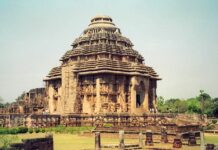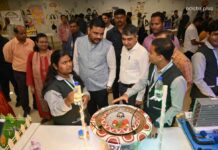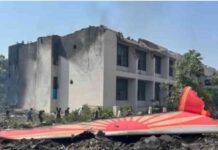June 25, 2025, marks 50 years since Indira Gandhi imposed the Emergency. Democracy was derailed, and dissent silenced. This reflection draws lessons from that era.
Sambeet Dash

One fine morning in June 1975, Justice Jagmohan Sinha of Allahabad High Court judged Prime Minister Indira Gandhi’s victory over her rival Raj Narain, a political buffoon of the time, as null and void. This unexpected verdict was followed by calls for her resignation. Strikes and violence spread across parts of India as anarchy reigned. Soon she imposed internal emergency on the sultry midnight of June 25, 1975. That was exactly 50 years ago.
At that point, India was independent for less than 30 years. The hangover of being ruled in an undemocratic way was still strong (hasn’t changed a whole lot since), so also the obsequiousness towards the ruler hadn’t faded yet. It manifested itself by Indira Gandhi behaving herself as if she was the “Empress of India”, not a democratically elected leader.
She couldn’t be blamed alone, as a pliant media branded her as “The Iron lady”. We can see this in the current disposition. The success of Bangladesh war and its subsequent liberation probably went on to her head. It is said that even a senior opposition leader A B Vajpayee of Jan Sangh (the precursor of India’s current pro-Hindu ruling party BJP) who later went on to become India’s Prime Minister famously idolized Indira Gandhi by describing her as our “Goddess Durga”. RSS was soft on her those days.
Indira had become a cult figure by then. With cult status came sycophancy. Deb Kanta Barooah, a Congressman from Assam famously said about her – “India is Indira, Indira is India” (We have similar thinking these days by a few who say India is Modi, Modi is India. If you are against Modi, you are anti-Indian). She was soon surrounded by pliable sycophants who fed her what she liked to hear. Her younger son and groomed political heir Sanjay Gandhi was already behaving as a bully.
All fundamental rights were snatched from the citizens. Those who protested were put in jail. Indira and Sanjay Gandhi expected the opposition and the media to bend. Yet to their surprise barring a very few, most of the contemporary media decided to crawl. (Now history is repeating itself as the Godi or laptop media crawls before Mahaprabhu). One exception during those days was Kishore Kumar, an extremely popular singer at that time. He refused to sing for Sanjay Gandhi and was promptly banned from government controlled All India Radio and TV.
Not everybody opposed emergency. Barring a few incidents in Kerala, the rest of South India stood solidly behind her during the emergency and after (We see some parallels now as our Vishwaguru has the backing of his staunch supporters, mostly in North India). South of the Vindyas she stayed very popular among the masses as AMMA INDIRAMMA (mother Indira).
In the Election that followed after emergency was lifted, Indira Gandhi swept the South though she was defeated from rest of India. (It needs to be noted that RSS and Siv Sena admired her for teaching its arch enemy Pakistan a lesson by carving a Bangladesh out of it. Both extended their covert support to her and she reciprocated by occasionally taking the help of RSS and Siv Sena during the Emergency to further her political goals).
Indira shrewdly played soft Hinduva card to her advantage as and when needed. But her son Sanjay had no soft corner for anyone and had no patience for the rule of law. He bulldozed slums of Delhi and rumored to have organized forced castration of Muslims, blaming them for India’s population explosion.
But many who still remember those days say that though the freedom of citizens was clipped, the emergency had some positive outcome. People in government offices (biggest employer those days) came to work on time. Public sectors started making profit. Buses, planes and trains were dot on schedule. Though short lived, it was proven that we Indians respect the power of DANDA (rod) more than democracy.
I still believe a benevolent dictatorship with a vision is better than the chaotic democracy we presently have. We can disagree on this, but Jeffersonian model of democracy is a myth, a mirage and certainly doesn’t fit to all milieu.
Yet we can agree that Emergency was one of the important events in the post Independent India and there is always something to learn from history. Fifty years since history is still keep repeating itself.
(The writer is a technocrat and lives in Columbus. Views are personal.)
























